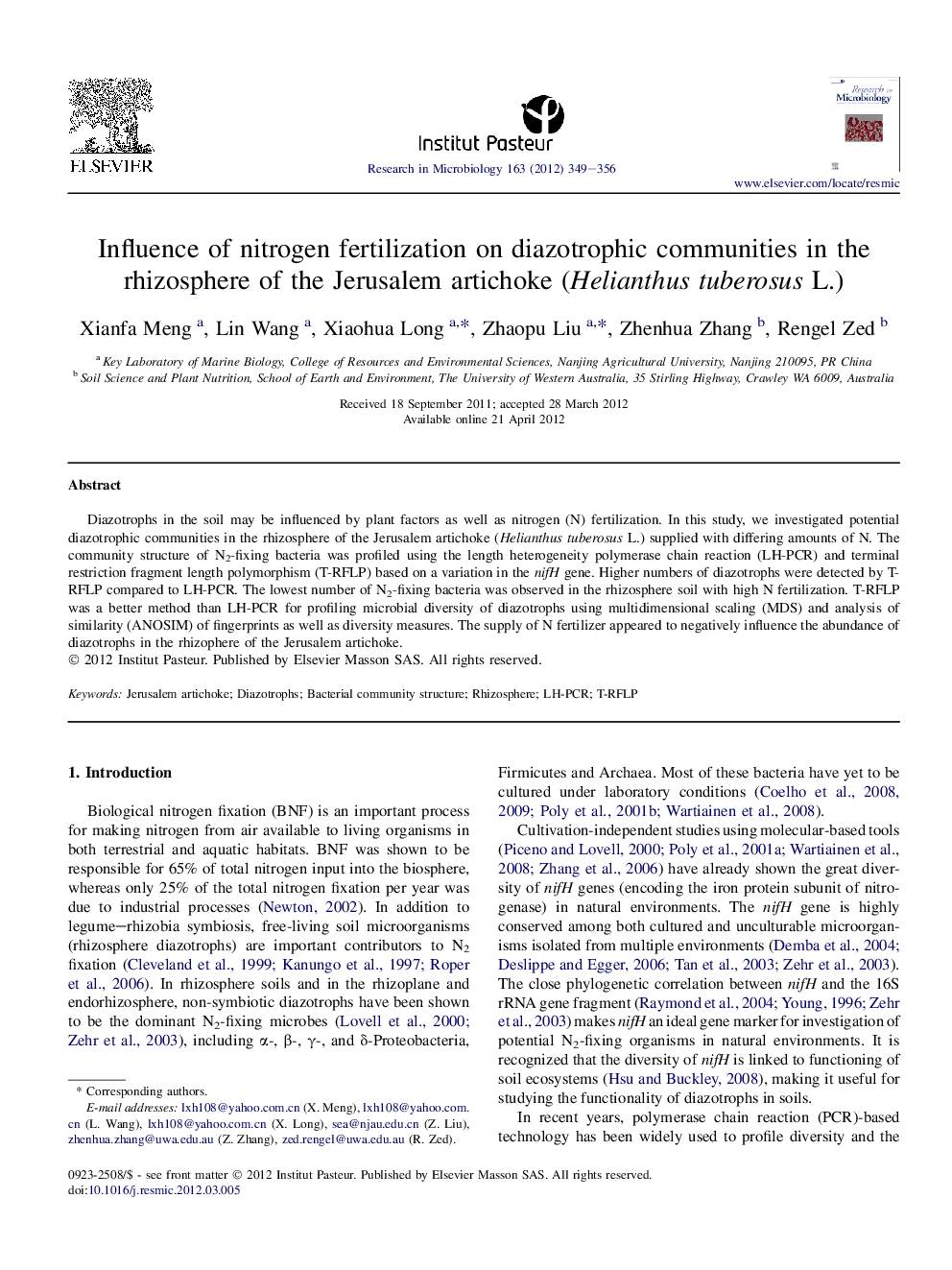| Article ID | Journal | Published Year | Pages | File Type |
|---|---|---|---|---|
| 4358713 | Research in Microbiology | 2012 | 8 Pages |
Abstract
Diazotrophs in the soil may be influenced by plant factors as well as nitrogen (N) fertilization. In this study, we investigated potential diazotrophic communities in the rhizosphere of the Jerusalem artichoke (Helianthus tuberosus L.) supplied with differing amounts of N. The community structure of N2-fixing bacteria was profiled using the length heterogeneity polymerase chain reaction (LH-PCR) and terminal restriction fragment length polymorphism (T-RFLP) based on a variation in the nifH gene. Higher numbers of diazotrophs were detected by T-RFLP compared to LH-PCR. The lowest number of N2-fixing bacteria was observed in the rhizosphere soil with high N fertilization. T-RFLP was a better method than LH-PCR for profiling microbial diversity of diazotrophs using multidimensional scaling (MDS) and analysis of similarity (ANOSIM) of fingerprints as well as diversity measures. The supply of N fertilizer appeared to negatively influence the abundance of diazotrophs in the rhizophere of the Jerusalem artichoke.
Related Topics
Life Sciences
Immunology and Microbiology
Applied Microbiology and Biotechnology
Authors
Xianfa Meng, Lin Wang, Xiaohua Long, Zhaopu Liu, Zhenhua Zhang, Rengel Zed,
